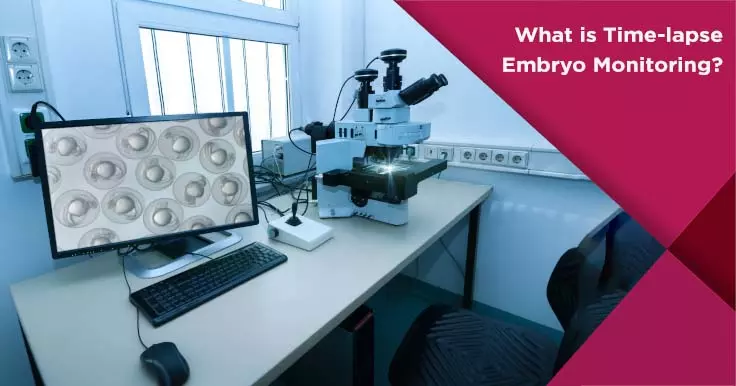What is Time-lapse Embryo Monitoring?
Time-lapse embryo monitoring is the latest technology which is used during an IVF/ICSI treatment that enables the embryologists to assess the embryos in detail. This is a special type of incubator with a built-in camera that takes pictures of the developing embryos at regular intervals. This camera unit connects to a microscope system. The captured pictures are processed using a software that combines these pictures to form a time-lapse video. This helps the embryologist to assess every vital stage of a developing embryo.
Advantages of Time-lapse Monitoring
It is important to choose a time lapse IVF clinic as the time lapse monitoring comes with a number of advantages. In a typical IVF procedure, the developing embryo is monitored daily once for proper growth and development. This exposes the embryo to the sub-optimal conditions that result in its poor growth and quality. Also monitoring the embryos daily once can limit the embryologist with very few data regarding its growth and other parameters. Thus selecting the highest quality embryos may not possible.
With the time-lapse monitoring IVF incubators, it is now possible for the embryologists to watch all the vital stages of embryo development without removing them from the incubator. It allows them to select the embryos with the highest implantation potential without disturbing the optimal environmental conditions of the incubator.
Post-embryo selection, most of the clinics provide a copy of the time-lapse video for their client to view. It does not always mean that the use of time-lapse embryo monitoring in an IVF cycle can guarantee a 100% success rate. There are various factors that result in an unsuccessful IVF cycle. The key role of using a time-lapse monitoring technique is to identify the most viable embryos to transfer for the highest chances for pregnancy based on morphokinetics.
Without time-lapse, an embryologist selects embryo only on the basis of its morphology, whereas time lapse help them keep in mind the timing involved during cleavage and development.
 Infertility Counselling
Infertility Counselling Female Infertility Treatment
Female Infertility Treatment Andrology Treatment
Andrology Treatment Fertility Enhancing Surgeries - Female
Fertility Enhancing Surgeries - Female Fertility Enhancing Surgeries - Male
Fertility Enhancing Surgeries - Male Endoscopy Treatment
Endoscopy Treatment IUI Treatment
IUI Treatment IVF Treatment
IVF Treatment ICSI Treatment
ICSI Treatment Advanced IVF Solutions
Advanced IVF Solutions Embryology
Embryology Vitrification Egg, Embryo, Sperm Freezing
Vitrification Egg, Embryo, Sperm Freezing Preimplantation Genetic Testing (PGT)
Preimplantation Genetic Testing (PGT) Donation Program Embryo / Egg / Sperm
Donation Program Embryo / Egg / Sperm Self-cycleTM IVF
Self-cycleTM IVF

 Self-cycleTM IVF
Self-cycleTM IVF











